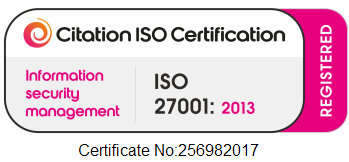How Applicant Tracking Systems Will Evolve In 2024
Applicant tracking systems allow you to track all correspondence from jobs boards and your careers website, assisting in your response, and filling vacancies quickly and efficiently. The software can support you from the early stages of requisition through to onboarding, creating a seamless recruitment journey for all stakeholders.
In today’s fast-paced job market, applicant tracking systems (ATS) have become essential for recruiters and hiring managers. These systems help streamline the hiring process by efficiently managing job applications, screening candidates, and identifying the best fit for open positions.
However, as technology advances and the job market evolves, applicant tracking systems are poised to undergo significant changes in 2024. In this article, we will delve into the exciting developments and trends that will shape the future of ATS, revolutionising the way companies recruit and hire talented individuals.
Enhanced Artificial Intelligence (AI) Integration
Artificial Intelligence has already made its mark in applicant tracking systems, but in 2024, we can expect to witness even greater AI integration. With advanced algorithms and machine learning capabilities, ATS will become more intuitive and efficient at analysing candidate data. These systems will not only screen resumes but also evaluate candidate suitability based on their skills, experiences, and cultural fit within an organisation. The incorporation of AI will enable recruiters to make more informed decisions and reduce the chances of overlooking qualified candidates.
Smarter Resume Parsing
Resume parsing is a vital function of applicant tracking systems, as it extracts relevant information from resumes and populates the system’s database. In 2024, ATS will utilise advanced natural language processing (NLP) algorithms to improve the accuracy and speed of resume parsing. This means that ATS will better understand and categorise information such as work experience, education, skills, and certifications. As a result, recruiters will spend less time manually inputting data and more time engaging with potential candidates.
Video-Based Assessments
In the coming years, video-based assessments will gain significant traction within applicant tracking systems. Instead of relying solely on resumes and cover letters, recruiters will have the opportunity to assess candidates’ skills and personalities through recorded video interviews. This technology will enable recruiters to gain a more holistic view of candidates, allowing them to evaluate their communication skills, body language, and problem-solving abilities. Video-based assessments will add a personal touch to the hiring process, enabling recruiters to make more accurate judgments.
Integration with Social Media Platforms
In the age of social media, it is no surprise that applicant tracking systems will integrate more closely with popular platforms such as LinkedIn, Facebook, and Twitter. In 2024, recruiters will have the ability to source candidates directly from social media profiles, expanding their talent pool beyond traditional job boards. This integration will also provide recruiters with valuable insights into candidates’ professional networks, interests, and online presence, helping them make informed hiring decisions.
Mobile-First Approach
With the increasing reliance on smartphones and tablets, applicant tracking systems will adopt a mobile-first approach in 2024. Mobile-friendly ATS platforms will allow candidates to conveniently search and apply for jobs using their mobile devices. Recruiters, too, will benefit from this trend by gaining access to a larger pool of candidates who prefer mobile job searching. Mobile optimisation will streamline the application process, enhancing the overall user experience and attracting top talent.
Improved Candidate Relationship Management (CRM)
In the coming years, applicant tracking systems will focus on enhancing candidate relationship management (CRM) capabilities. ATS will enable recruiters to build long-term relationships with potential candidates, even if they are not an immediate fit for a particular role. By maintaining a talent pool and nurturing relationships through personalised communication, recruiters can tap into a network of qualified candidates for future job openings. This proactive approach to talent acquisition will save time and resources while fostering a positive employer brand.
Data-Driven Analytics
Data analytics will play a pivotal role in the evolution of applicant tracking systems. In 2024, ATS will leverage powerful analytics tools to provide recruiters with valuable insights into their hiring process. These analytics will measure key performance indicators (KPIs) such as time-to-hire, cost-per-hire, and candidate quality. By analysing these metrics, recruiters can identify areas for improvement, optimise their recruitment strategies, and make data-driven decisions. Data-driven analytics will empower recruiters to streamline their hiring process and attract the best talent.
Emphasis on Diversity and Inclusion
Diversity and inclusion have become increasingly important in the modern workplace, and applicant tracking systems will reflect this shift in 2024. ATS will incorporate features that promote diversity and help organisations create more inclusive hiring practices. These features may include blind hiring, unconscious bias detection, and the ability to track and analyse diversity metrics. By prioritising diversity and inclusion, ATS will assist recruiters in building diverse teams that drive innovation and success.
As we look ahead to 2024, applicant tracking systems are poised to undergo significant transformations that will revolutionise the hiring process. By embracing these advancements, recruiters and hiring managers will be able to attract top talent, make more informed decisions, and build successful organisations in an ever-evolving job market.
Share this post and follow us on social media!
Like our blogs? Sign up for our newsletter



Comments are closed